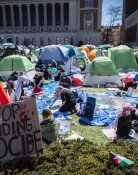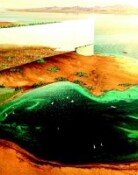Breach of trust is more dangerous than anthrax spores
Breach of trust is more dangerous than anthrax spores
Posted December. 19, 2015 07:26,
It has been learned that the United States Forces Korea (USFK) brought anthrax samples into Korea not just once in April but a total of 16 times. According to the result of a Korea-U.S. joint fact-finding probe into the anthrax shipment to Korea, the USFK brought anthrax samples 15 times between 2009 and last year. In April this year, the USFK imported both anthrax and plague samples into Korea.
When the USFK announced its test in Korea of anthrax samples, it said that was the first anthrax experiment. Although the joint working group for the investigation said that the USFK meant it was the first experiment under the U.S. military`s chemical and biological warfare program known as the "JUPITR," the USFK cannot avoid the criticism for trying to conceal its shipment of anthrax spores to South Korea. The USFK had never informed Seoul of any such shipment.
Seoul and Washington believe that North Korea possesses 13 types of biological agents, including anthrax and plague spores, for possible use in terror attacks or a full-fledged war. South Koreans would not totally oppose the USFK`s anthrax and plague sample tests to provision against the North`s dangerous biological weapons. However, it should conduct chemical and biological experiments and drills in transparent and safe manners so that the people of its ally do not have doubts.
The two allies had a rough time after two South Korean teenagers were run over and killed by USFK armored vehicles during a field exercise in 2002. At a time when a solid cooperation with Seoul is imperative amid rising increasing unpredictability of North Korea, trust between the governments and people of the two allies are more important than anything else. In 2006, "The Host," a South Korean film on a monster fish, mutated by toxic chemicals dumped by the USFK, running amok in Seoul, became a huge box office hit, attracting more than 10 million moviegoers. Authorities in Seoul and Washington should be aware that if South Koreans believe such a fictional story as true, it spells disaster for both countries.
Headline News
- N. Korea launches cyberattacks on S. Korea's defense companies
- Major university hospital professors consider a day off each week
- Italy suffers from fiscal deficits from ‘Super Bonus’ scheme
- Inter Milan secures 20th Serie A title, surpassing AC Milan
- Ruling and opposition prioritize spending amid tax revenue shortfalls







